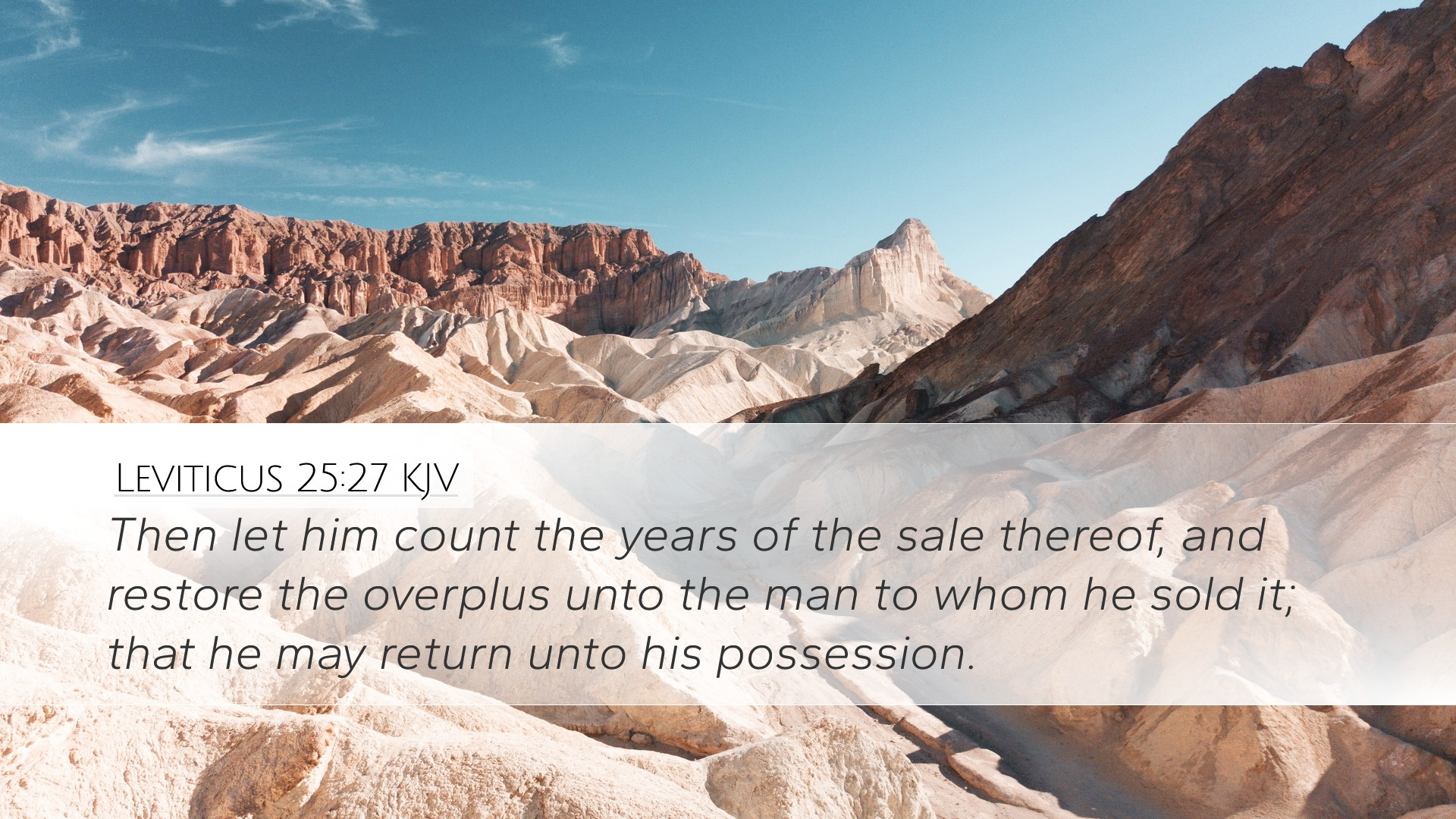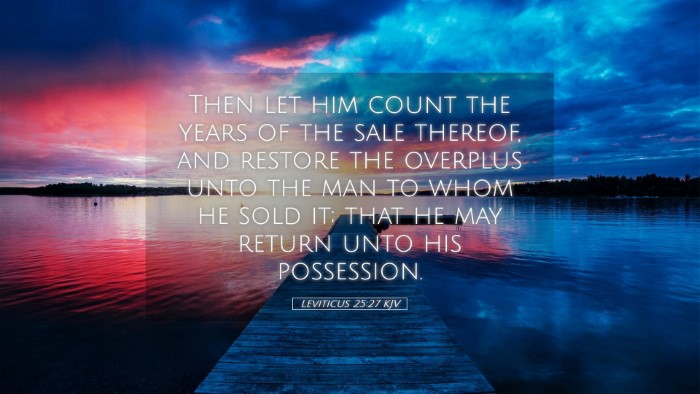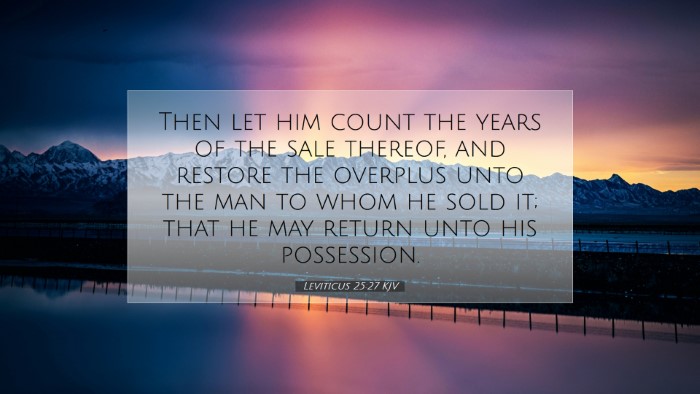Commentary on Leviticus 25:27
Leviticus 25:27 states:
"Then let him count the years of the sale thereof, and restore the overplus unto the man to whom he sold it; that he may return unto his possession."
Introduction
This verse is part of the Holiness Code found in Leviticus, which outlines regulations for the Israelites, especially concerning land ownership and Jubilee laws. This commentary will explore the spiritual and practical implications of this verse as drawn from various esteemed public domain commentaries.
Contextual Analysis
Leviticus 25 addresses the themes of rest, redemption, and restoration, reflecting God's concern for social justice and the equitable distribution of land among the tribes of Israel.
- Land as Inheritance: The land was considered a divine inheritance bestowed upon the people of Israel. Each tribe and family had their own portion, and this verse emphasizes restoring rightful ownership.
- The Year of Jubilee: In the context of Leviticus 25, this command links closely to the Year of Jubilee, a time when all debts were forgiven and lands returned to their original owners. The restoration of the sellable excess is a reminder of God’s ultimate ownership over the land.
Interpretative Insights
Matthew Henry emphasizes the significance of justice and mercy in the restoration process. He highlights that equitable treatment must be observed in the sales of property, ensuring that a seller does not suffer unjustly due to personal misfortune.
Matthew Henry: “It was a great mercy and kindness to restore the overplus unto him, that he might not suffer loss by the circumstance of poverty.”
Theological Implications
Understanding the theological implications of Leviticus 25:27 leads to deeper insights related to God's character as a restorer and redeemer.
- Divine Ownership: This verse serves as a vivid reminder that God is the ultimate owner of all creation. The restoration process reflects God’s providential care for His people.
- Human Responsibility: While God grants the land, humans are entrusted with the responsibility to act justly and fairly. The law's structure promotes societal fairness and mitigates the impacts of personal failure.
Practical Applications
For pastors, theologians, and students of the scripture, Leviticus 25:27 offers practical lessons on integrity, generosity, and community stewardship.
- Community Restitution: The passage encourages communities today to consider ways in which they can support individuals who may be struggling financially, ensuring that no one is left to suffer permanently due to circumstances beyond their control.
- Personal Reflection: Believers are invited to examine their own practices regarding wealth and resource management, being mindful of injustices that may arise from economic disparities.
Conclusion
In conclusion, Leviticus 25:27 is a significant scripture that underscores God's desire for justice and restoration among His people. By aligning our lives with these principles of divine ownership and restoration, we can embody the character of God in our communities. This verse remains a vital teaching for those engaged in the pastoral ministry and broader theological discourse.
References
- Matthew Henry: "Matthew Henry's Commentary on the Whole Bible."
- Albert Barnes: "Barnes' Notes on the Bible."
- Adam Clarke: "Clarke's Commentary on the Bible."


